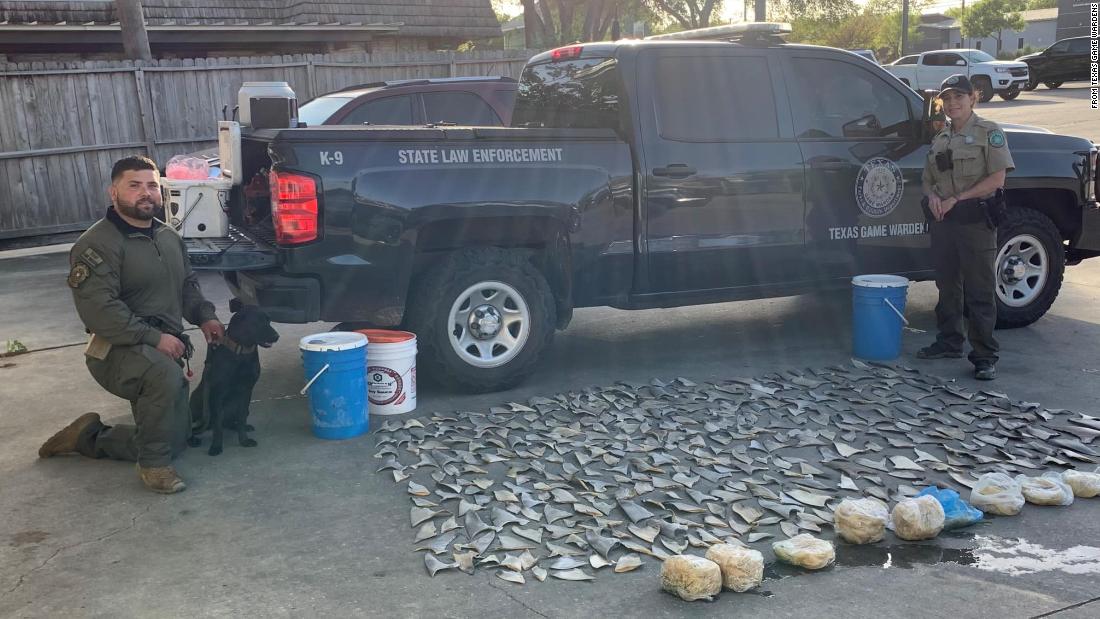

Some of the fins came from blacktip sharks, which are found throughout the Gulf of Mexico, although it isn’t clear that the sharks originated from the gulf, Winters says. He added that they were not able to identify the species of all the sharks.
“Some were peeled already, prepared to be cooked for the soup,” he said.
Still, “the demand and the market and the trade for [fins] is there,” Winters said.
This is the first known shark fin case in San Antonio, according to Winters.
“It is pretty significant that in a city that’s one-and-a-half or two hours from the coast, we’re still finding” shark fins for sale, he said.
He said that these kinds of busts “don’t occur often” — although he did once discover an even bigger cache of 861 fins at a store in Houston.
Winters was aided in the inspection by his canine colleague Bailey, who is trained to sniff out shark fin, sea turtle shells, red snapper, dove and oysters.
“Our sharks are apex predators. Our oceans need them,” Winters said. “If we start losing our fish and our apex predators and so on, it can have a tremendous effect on human beings.”
“It’s imperative now that we have the opportunity to try to protect the resource as much as we possibly can,” he added. “So we’re not talking about sharks 10 years from now being extinct.”